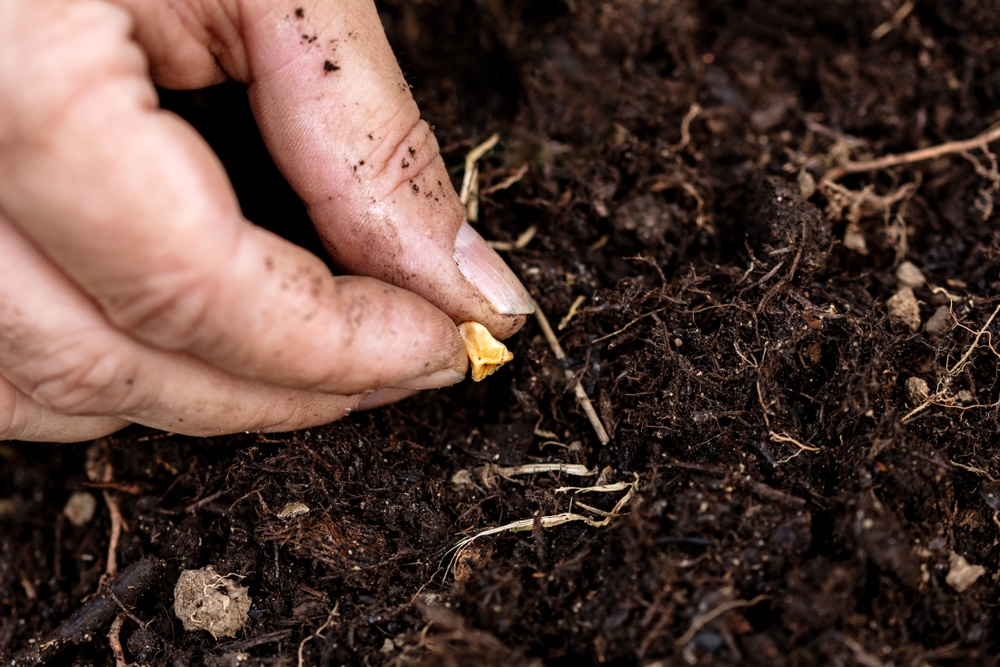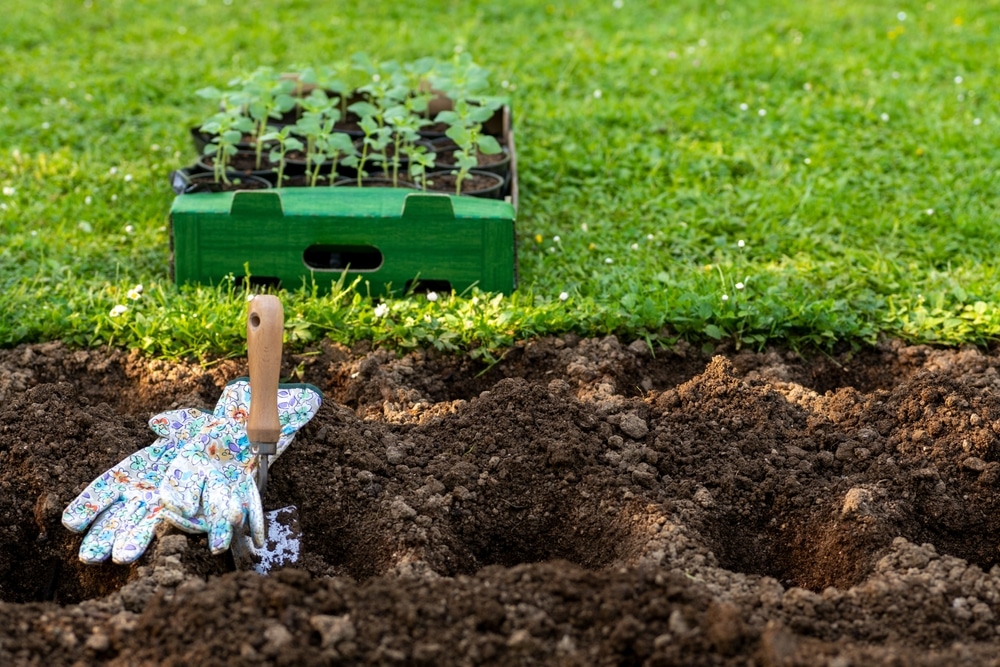Starting your own garden can feel like stepping into a whole new world—one filled with vibrant colors, fresh air, and maybe a little dirt under your nails. Whether you dream of fresh veggies, colorful flowers, or just a peaceful hobby, gardening offers something for everyone. But if you’re a total newbie, it’s easy to feel overwhelmed. What tools do you need? How do you pick the right plants? And will they even survive?
Don’t worry! With these gardening tips for beginners, you’ll have everything you need to start growing with confidence. Gardening doesn’t have to be complicated—whether you’ve got a sprawling yard, a tiny balcony, or just a sunny windowsill, there’s a way to make it work for you. So, roll up your sleeves, grab a watering can, and let’s get digging into the basics. With the right tips and a little patience, you’ll have your own green sanctuary in no time!
Why Gardening is the Perfect Hobby for Beginners
Gardening isn’t just a hobby—it’s a way to slow down, connect with nature, and even improve your mental health. For beginners, it’s an especially rewarding experience because you get to witness tangible results from your efforts. Plant a seed, give it some love, and watch it grow into something beautiful or edible! Plus, gardening is as flexible as it gets. You can start small with a single potted plant on a windowsill or go big with raised beds in your backyard.
For those worried about commitment, gardening also teaches patience and resilience. Not everything you plant will thrive, and that’s okay. It’s all part of the learning process! Plus, the physical act of digging, planting, and weeding can be a surprisingly effective stress reliever. Whether you’re looking for a creative outlet or a way to spend more time outdoors, gardening is the perfect choice for beginners ready to try something new.
Gardening Tips for Beginners: Start with the Right Tools
Having the right tools makes all the difference in your gardening experience. As a beginner, you don’t need to break the bank on fancy gadgets—just a few basic essentials will get you started. A sturdy pair of gardening gloves will protect your hands from thorns, dirt, and blisters. A trowel is perfect for digging small holes for seeds or plants, while a spade can handle larger digging tasks.
Don’t forget a good-quality watering can or garden hose to keep your plants hydrated. Pruners are another handy tool, ideal for trimming back overgrown branches or harvesting your plants. Finally, invest in a kneeling pad—it might seem unnecessary, but your knees will thank you after a day of planting and weeding. Remember, gardening is all about making the process enjoyable. With the right tools in hand, you’ll find it much easier to tackle each task and watch your garden thrive.

Choosing the Best Plants for Your First Garden
When starting out, the key to success is choosing plants that match your environment and experience level. For beginners, it’s best to go with hardy, low-maintenance plants that are forgiving of occasional mistakes. Herbs like basil, mint, and parsley are great choices—they grow quickly and don’t require a lot of space or special care.
For flowers, try marigolds, sunflowers, or zinnias. These blooms are easy to grow and add a splash of color to your garden. If you’re dreaming of fresh veggies, lettuce, radishes, and cherry tomatoes are excellent beginner options because they grow fast and don’t demand much effort.
Before you pick your plants, consider your space and sunlight. Does your garden get full sun, partial shade, or mostly shade? Matching plants to their light requirements will set you up for success. Starting with the right plants ensures that your first gardening experience is as rewarding as possible.
Mastering the Basics: Watering, Soil, and Sunlight Made Simple
Once you’ve picked your plants, the next step is mastering the three gardening essentials: watering, soil, and sunlight. The best gardening tips for beginners are simple and straightforward. Watering can seem straightforward, but overwatering is one of the most common mistakes beginners make. A good rule of thumb is to check the top inch of soil—if it’s dry, it’s time to water.
Soil quality plays a huge role in plant health. Invest in good-quality potting soil or amend your garden soil with compost to provide your plants with the nutrients they need. Test your soil’s drainage by pouring water into it; if it puddles, you might need to mix in sand or perlite for better aeration.
Finally, make sure your plants are getting the right amount of sunlight. Most vegetables and flowers need at least 6-8 hours of full sun daily, but some plants, like ferns or lettuce, thrive in partial shade. By keeping these basics in mind, you’ll give your plants the best chance to grow and flourish.
Check out this video guide to get more gardening tips for beginners!
Creating the Perfect Garden Space: Planning for Success
Before you even pick up a trowel or buy your first seed packet, taking the time to plan your garden space is one of the most important gardening tips for beginners. A well-thought-out plan can save you time, effort, and even money in the long run. But don’t worry—planning doesn’t have to be complicated. Here’s how to get started.
Which space?
First, assess your available space. Are you working with a backyard, a balcony, or just a few pots on a windowsill? Knowing your space helps determine the type and number of plants you can grow. For those with smaller spaces, container gardening or vertical gardening can be great options. Raised beds are another fantastic solution if you have a little more room but want an organized and manageable setup.
The Importance of Sunlight
Next, consider sunlight. Spend a day observing how much light different areas of your space get. Most vegetables and flowers need at least 6-8 hours of sunlight daily, so choose a spot that gets plenty of direct sunlight. For shaded areas, focus on shade-tolerant plants like ferns, hostas, or lettuce.
Once you’ve identified your space and sunlight, think about soil quality. Healthy soil is the foundation of a thriving garden, so it’s worth testing your soil for its pH level and nutrient content. You can buy a simple soil testing kit or consult your local garden center. If your soil isn’t ideal, don’t worry—adding compost, organic matter, or even opting for store-bought potting soil can make a big difference.
Make a sketch
Finally, sketch out a rough plan for your garden. Group plants with similar needs together, such as sun-loving veggies in one area and shade-tolerant plants in another. Keep in mind spacing requirements—overcrowding can lead to stunted growth and diseases. Planning your layout will also help you visualize the final look of your garden, making the process even more exciting.
By taking the time to plan your garden space, you’re setting yourself up for a smooth and enjoyable gardening experience. This foundational step ensures your garden will not only look great but also thrive with minimal setbacks as you get started on your gardening journey.

Common Mistakes New Gardeners Make (and How to Avoid Them)
Every gardener has made mistakes, especially when they’re just starting out. One of the most common pitfalls for beginners is planting too much too soon. It’s tempting to fill every available space, but overcrowding your garden can lead to poor growth, competition for nutrients, and even plant diseases. When following gardening tips for beginners, remember to start small—choose a manageable number of plants that you can care for properly and give them the space they need to thrive.
Another mistake is neglecting to read plant labels or seed packets. These little instructions provide critical details about spacing, watering, and sunlight requirements. Overwatering is another big one—remember, more water doesn’t mean more growth. Stick to a consistent watering schedule and let the soil guide you.
Finally, don’t forget to prepare your soil. Many beginners skip this step, but healthy soil is the foundation of a thriving garden. Adding compost or fertilizer can make a world of difference. By avoiding these pitfalls, you’ll set yourself up for a successful and enjoyable gardening experience.
Gardening is a journey, not a destination. With a little patience, the right tools, and these beginner-friendly tips, you’ll soon discover the joy of growing your own plants. Whether it’s fresh herbs in your kitchen, vibrant flowers in your yard, or a vegetable garden brimming with goodies, the possibilities are endless. Embrace the process, learn from your mistakes, and watch your garden—and your confidence—grow. Happy gardening!
Looking for more on gardening? Whether it’s gardening tips for beginners or smart gardening hacks, please check out more at Happy Lifehacks to make your gardening journey even easier!











